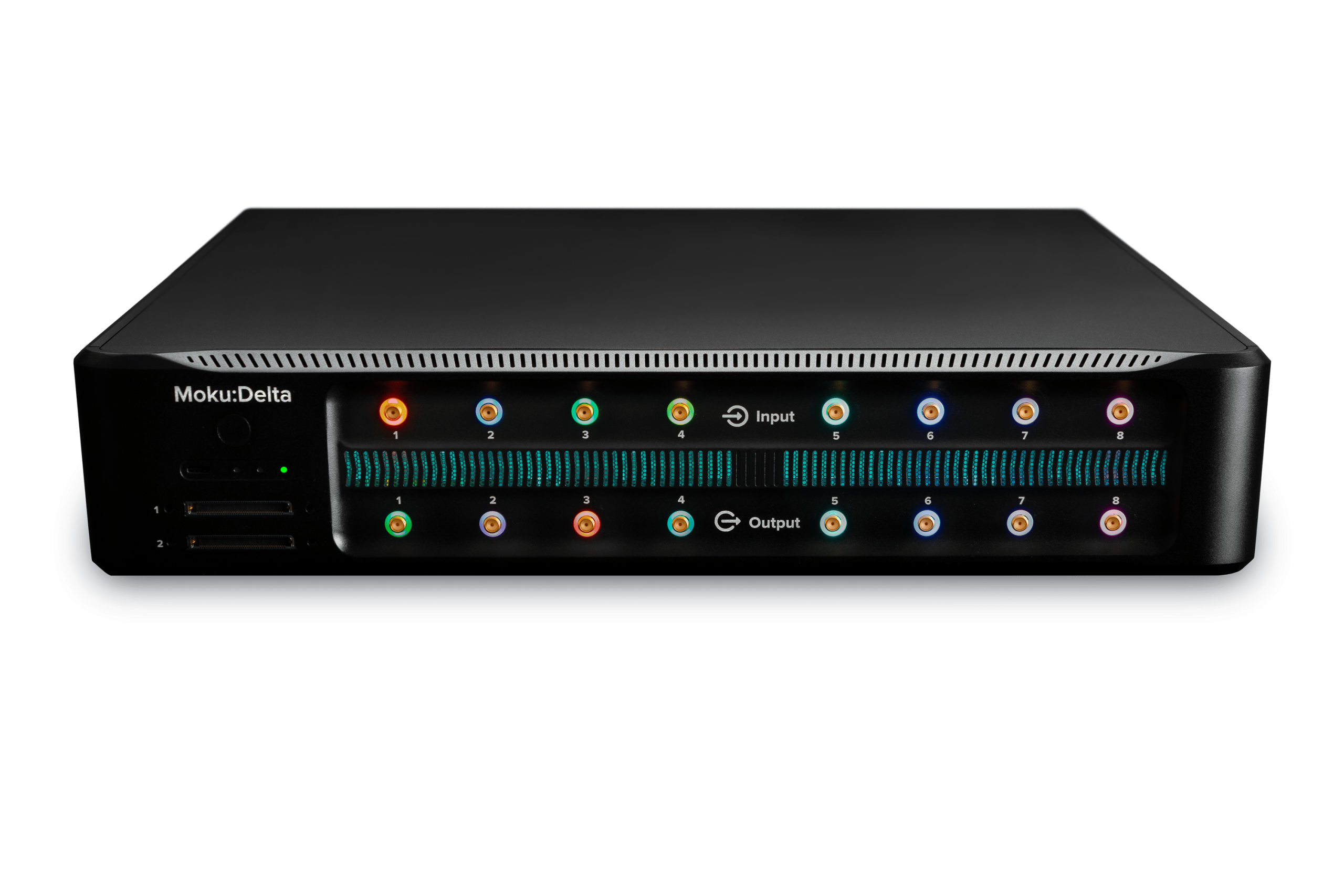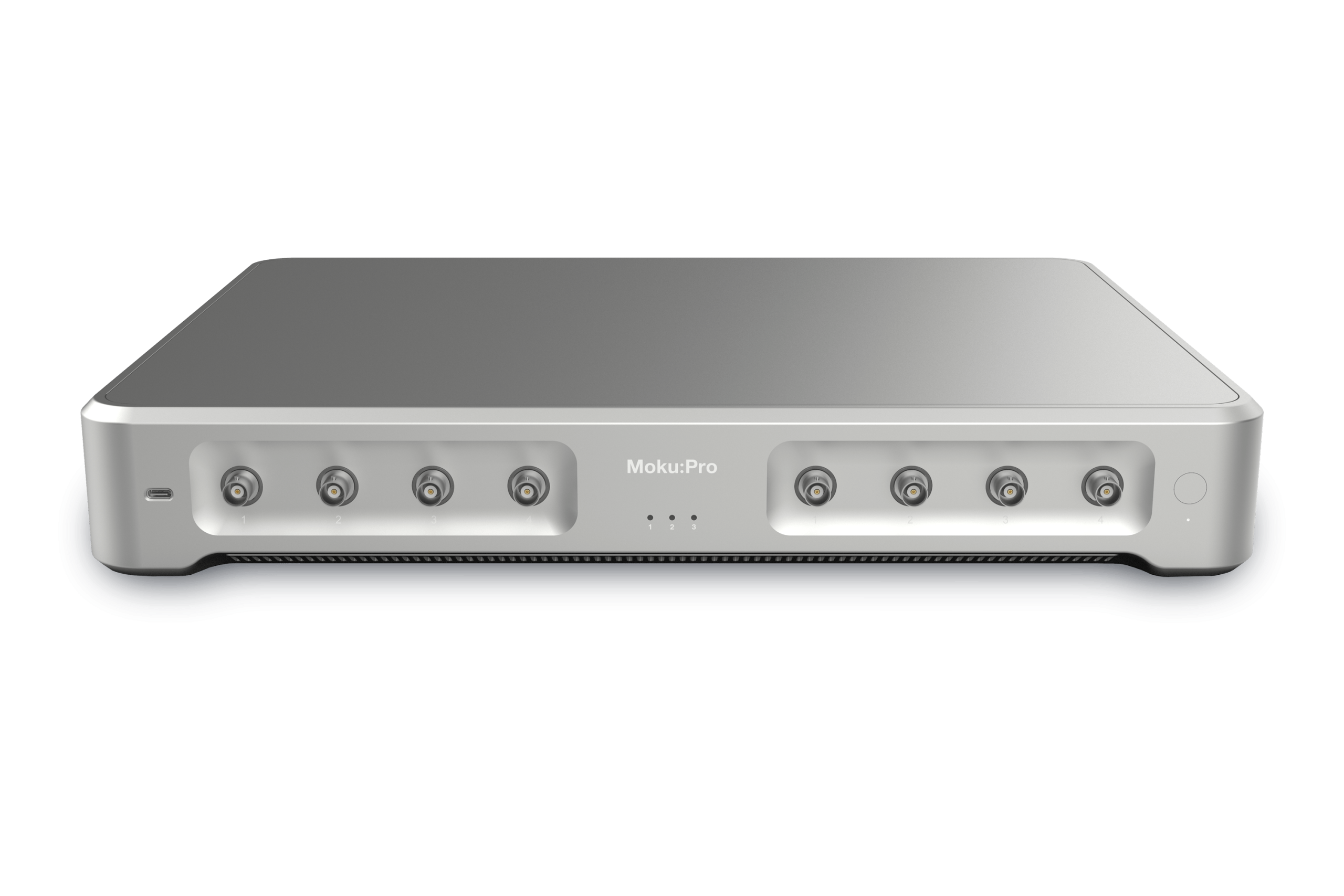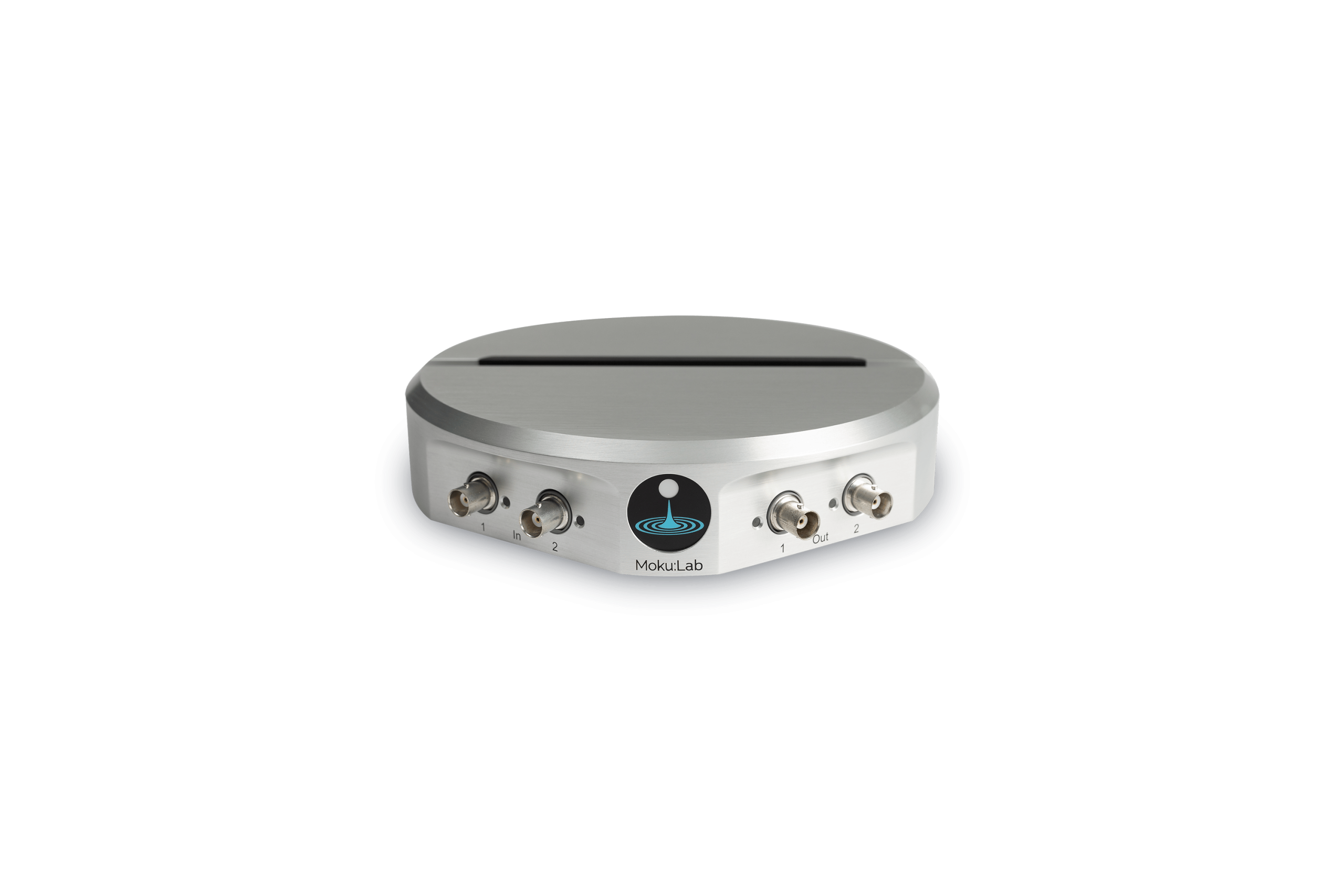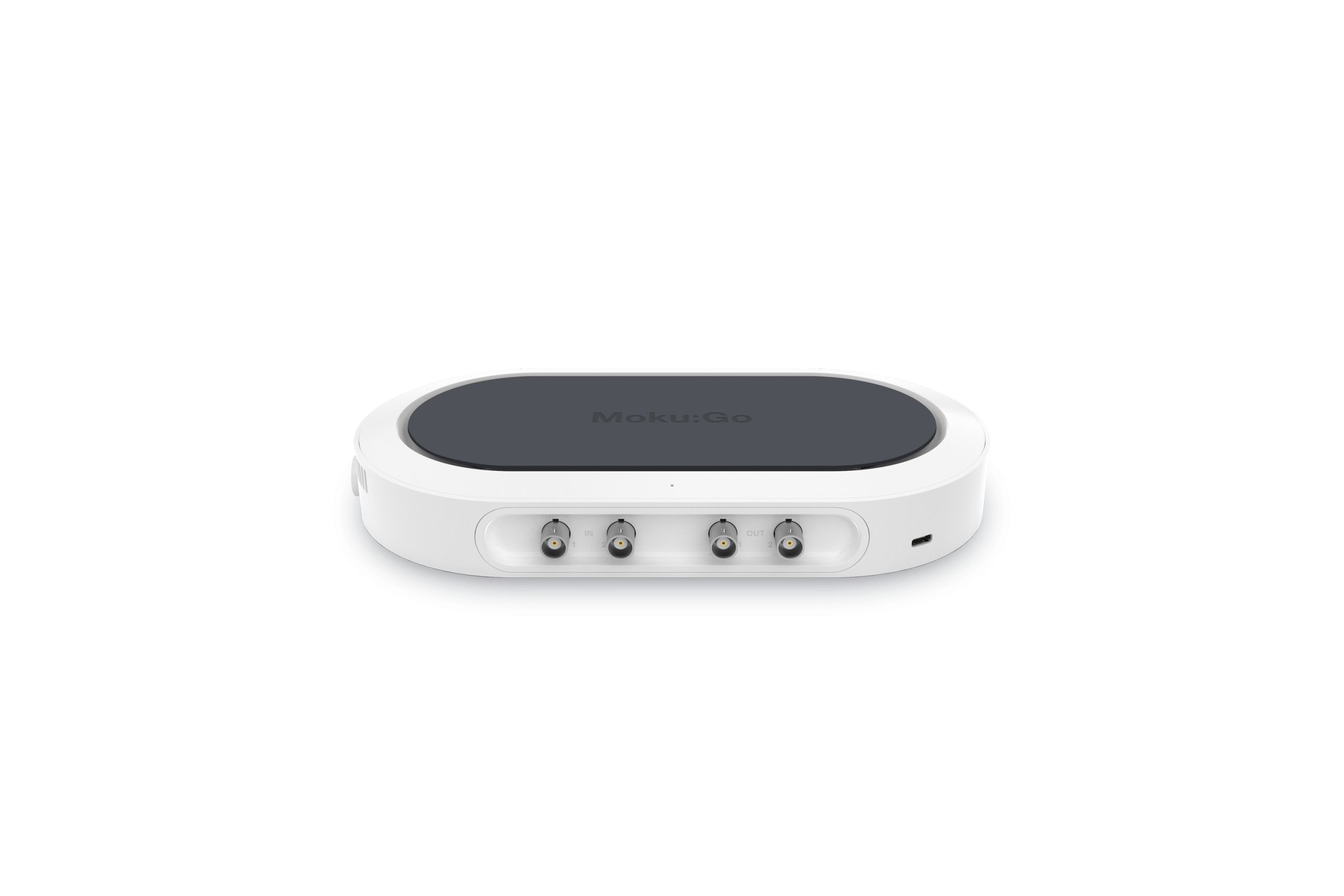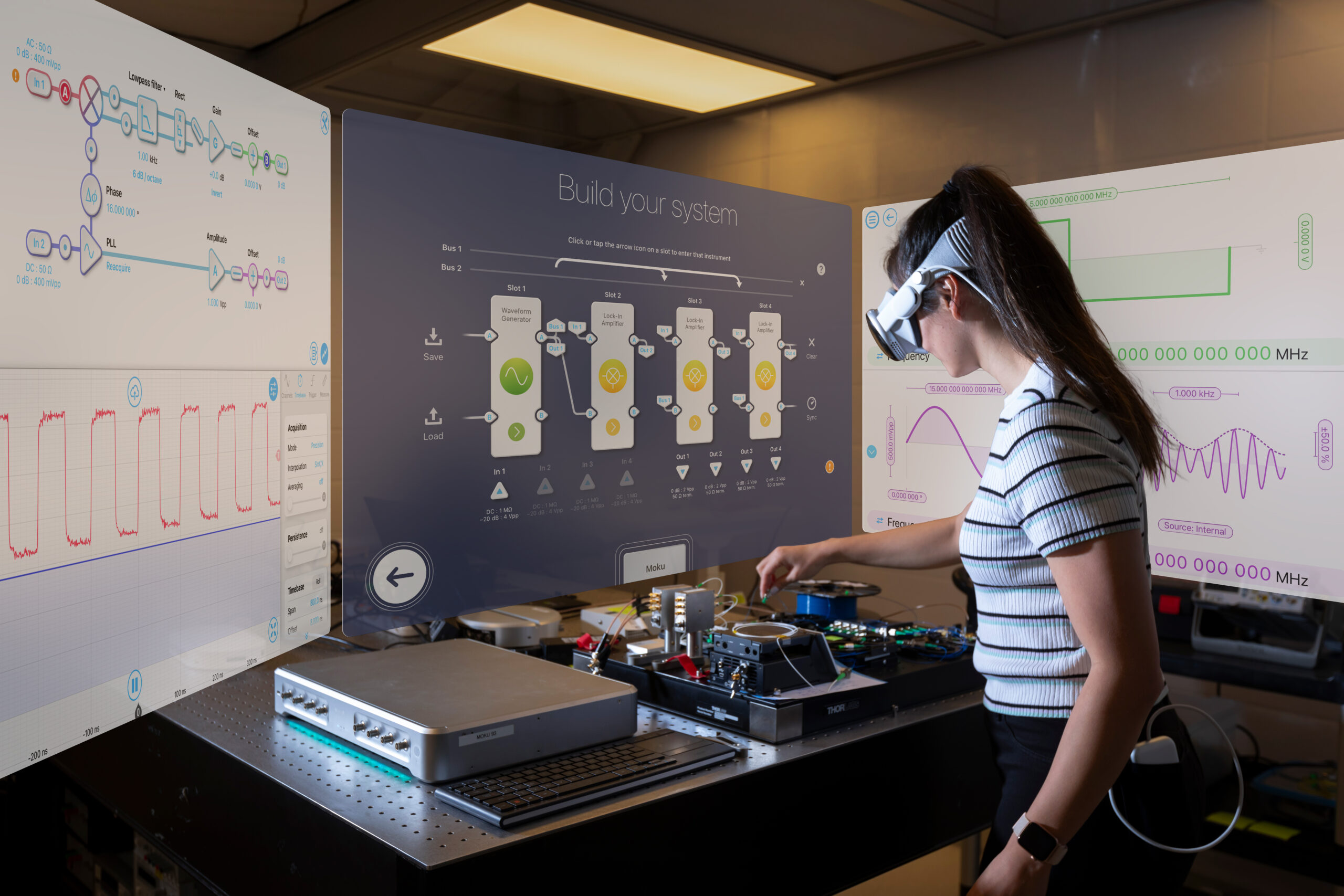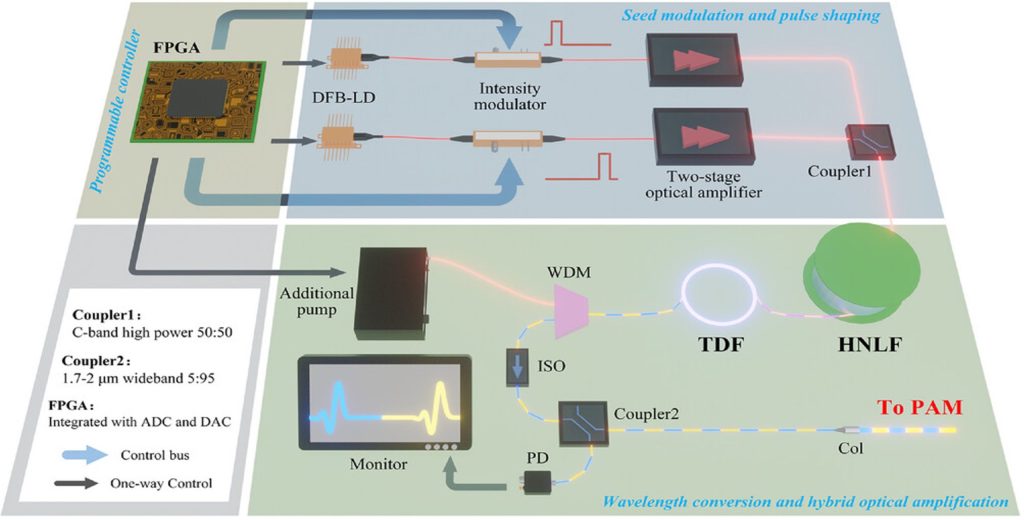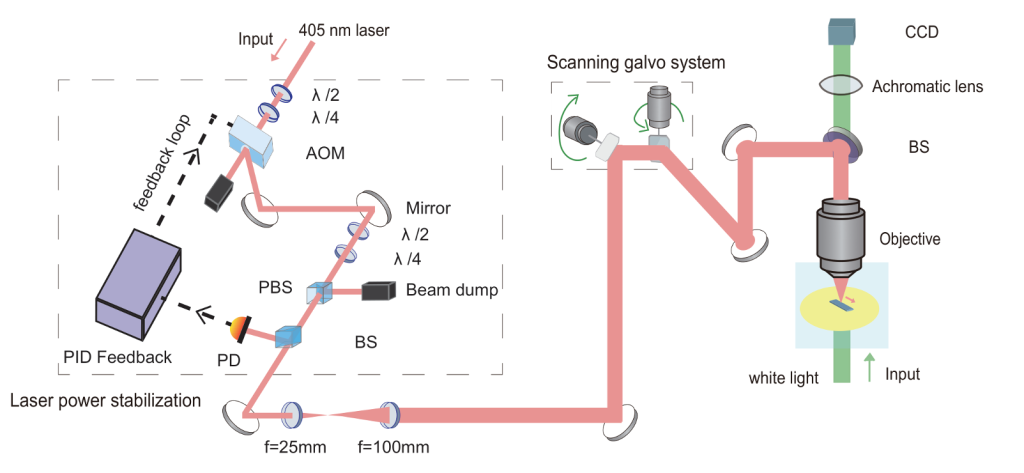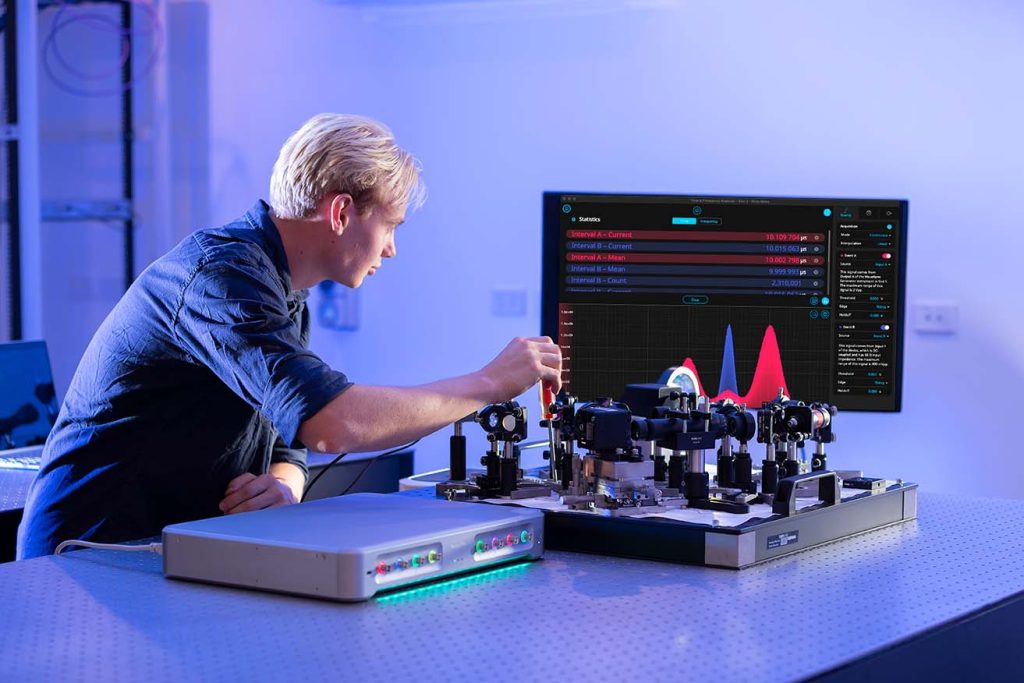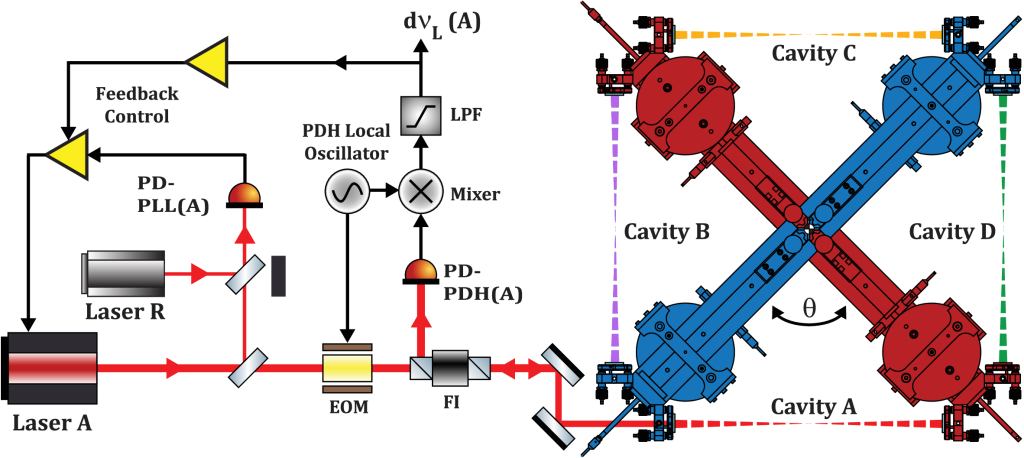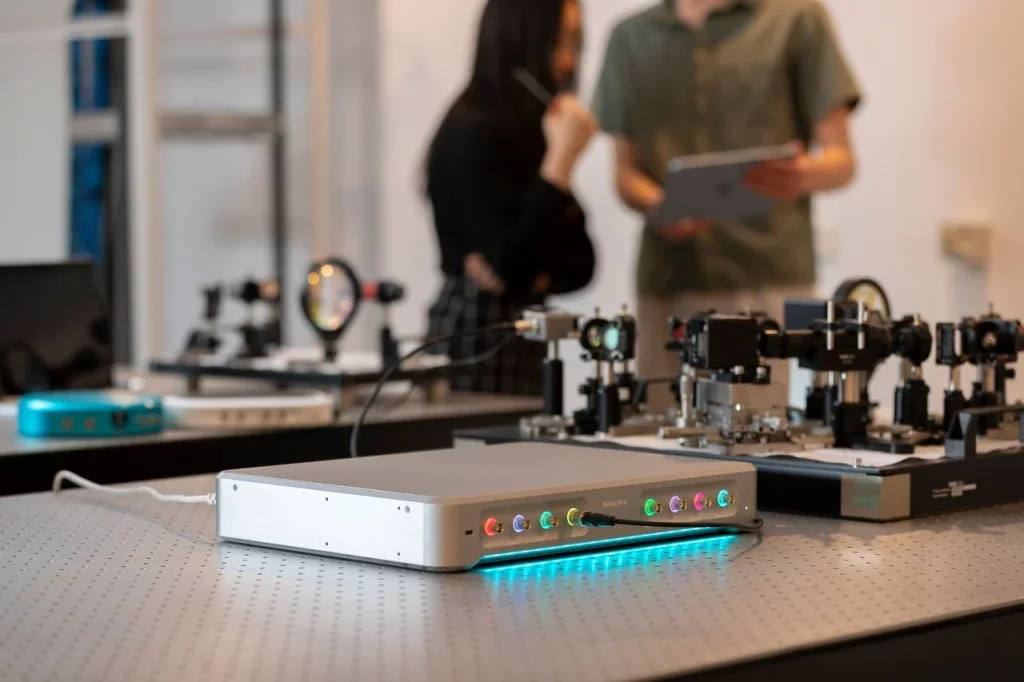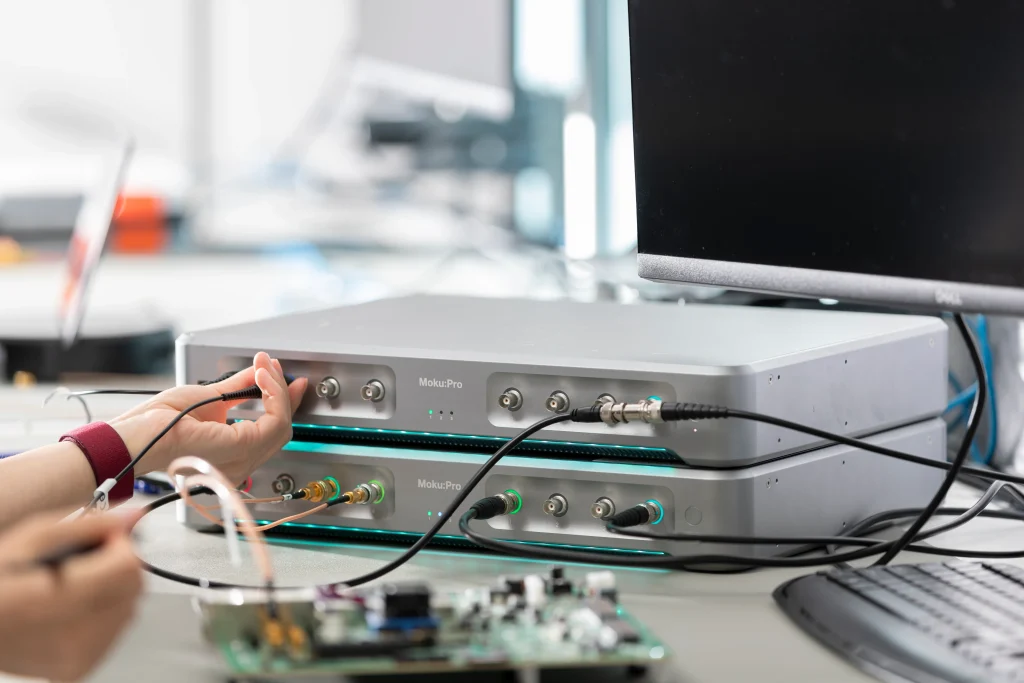Reconfigurable laser locking setups and optical PLLs
Easily lock lasers to a cavity using the Pound-Drever-Hall method or build custom optical phase-locked loops with the same hardware. Integrated PID controllers maintain your experimental settings without the need for manual tuning. Moku devices simplify applications such as gravitational wave detection, Mach-Zehnder interferometry, and laser frequency stabilization.
